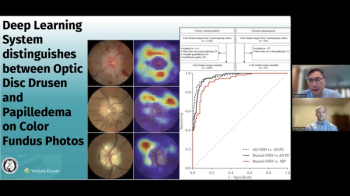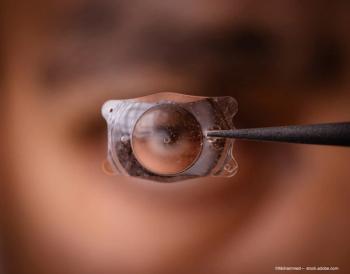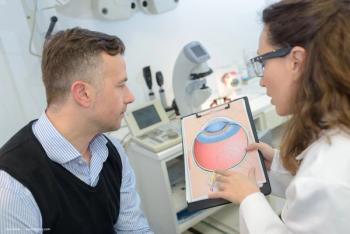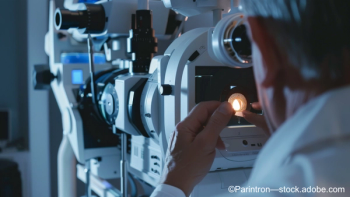
The company will prioritize its cash in funding its ongoing Phase 1/2 PRISM clinical trial and Phase 3 4FRONT program.

The company will prioritize its cash in funding its ongoing Phase 1/2 PRISM clinical trial and Phase 3 4FRONT program.

With this addition, Zeiss completes the Corneal Refractive Workflow, which already includes Visumax 800 and SMILE pro.

Previously, Teva was established as the European commercialisation partner of FYB201, Formycon's biosimilar to ranibizumab (Lucentis).

Whitecap is currently developing 2 therapies for potential use in glaucoma and geographic atrophy.

Andrew Lee, MD, and Andrew Carey, MD, sit down on another episode of the NeuroOp Guru to discuss deep learning systems and whether they can distinguish between optic disc drusen and true papilledema



The Loong Crystal PR IOL is designed for the treatment of myopia in adults ranging from -3.25D to -18.00D.

Wendy Lee, MD, an oculoplastics specialist and member of the program committee at EnVision Summit, shares an agenda that will include a mix of functional oculoplastics, aesthetics, and live facial rejuvenation demonstrations at the upcoming event, which will be held from February 14 to 17, 2025, at the Caribe Hilton San Juan in Puerto Rico.

The clinical trial successfully met pre-specified visual acuity primary endpoints in both the US and European Union (EU)/United Kingdom (UK) with statistically significant near vision improvements recorded at all time points over 8 hours

The additions to the ANTERION Cornea App will be commercially available in February 2025

ViGeneron also received approval for dose escalation in the ongoing phase 1b clinical trial.

The financing will go toward its ongoing phase 2b/3 and planned pivotal phase 3 clinical trial for AVD-104.

The long-term analysis show clinically and statistically significant reductions in intraocular pressure through up to 36 months postoperatively.

The company also released additional data from its phase 2 clinical trial in addition to the LONGITUDE program design.

The campaign will spotlight educational resources and share stories of individuals and families living with glaucoma to raise awareness and encourage proactive eye health management.

Oxular began a phase 2 trial for its therapeutic candidate OXU-001, for the treatment of diabetic macular edema in October 2024.

These resources include downloadable fact sheets, glaucoma financial assistance resources, shareable social media graphics, and a dedicated webpage.

The primary safety endpoint was carried out through the percentage of patients with shift from normal (at baseline) to abnormal in any electrocardiogram (ECG).

Patients with fibromyalgia experienced changes in the macular ganglion cell layer and retinal nerve fiber layer.


The multinational, multicenter, prospective RESTORE Study is the 5-year follow-up study of the phase 3 clinical RESCUE and REVERSE Studies of lenadogene nolparvovec to treat vision loss from LHON due to the MT-ND4 mutation.

The Danish Medicines Agency requested the EMA's Pharmacovigilance Risk Assessment Committee review reports on the vision-threatening condition.

Lana Rifkin, MD, a uveitis specialist at Ophthalmic Consultants of Boston, shared insights into her work and her role as committee chair of the uveitis section for the upcoming EnVision Summit, which will be held from February 14 to 17, 2025, at the Caribe Hilton San Juan in Puerto Rico.

The rationale was that commercial mydriatics administered during retinopathy of prematurity (ROP) screening have been associated with cardiorespiratory and gastrointestinal adverse events.

A study conducted with over 77,000 individuals found that alcohol consumption increased the risk of dry eye in women.

The trial is evaluating GAL-101 eye drops in patients with geographic atrophy, an advanced form of dry AMD.

In this study, researchers examine immune mechanisms in ocular diseases like uveitis, AMD, DR, and GO, highlighting microglial roles, targeted therapies, and promising advances in immunotherapy.

This year was brimming with advancements in eye care.

According to Robert Latkany, MD, understanding the causes and recognizing these diagnostic features are essential for effective treatment.